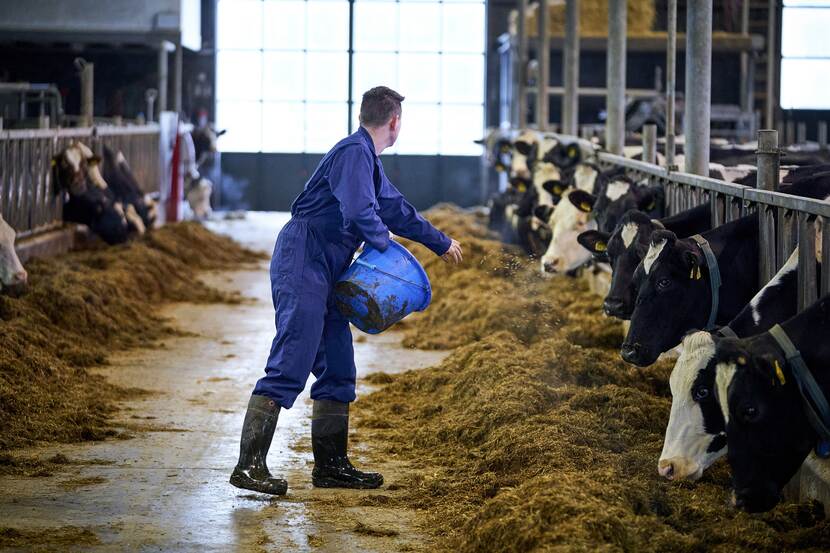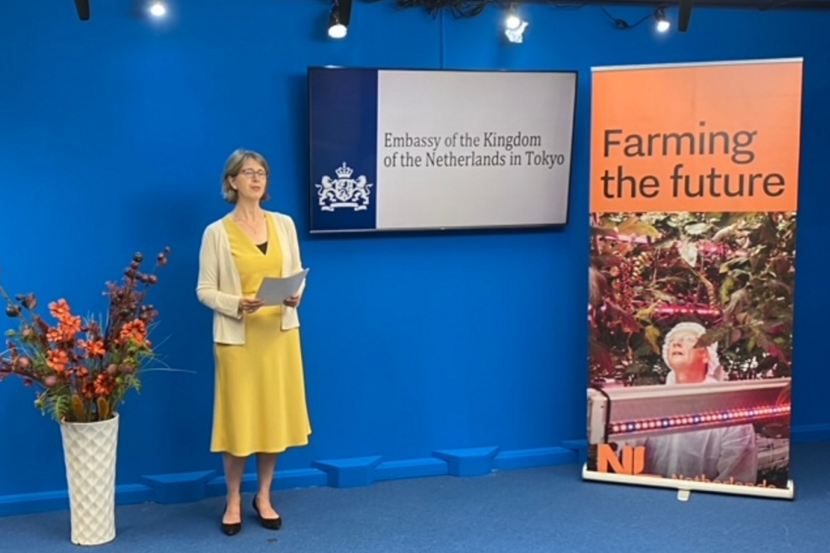R&D Japan pakt methaanemissies veehouderij aan
On 7 October 2021, the National Agricultural Research Organisation (NARO) organized a virtual symposium to discuss R&D efforts to reduce greenhouse gas emissions from livestock farming and in particular enteric methane from ruminants. Ms. Denise Lutz, Agricultural Counsellor of the Netherlands Embassy in Japan, gave a speech at the symposium as a guest speaker from the Netherlands. The event was attended by 500 participants, showing a high interest in this subject in Japan.
The symposium was organized as part of the Japanese research project for the “Realization of a new livestock production system to reduce methane by 80 % through complete control of the bovine rumen microbiome”. It is one of the 10 projects currently implemented under the so-called Moonshot Program for agriculture, forestry and fisheries launched by the Japanese government.
During the symposium, Japanese presenters reported current research efforts in Japan and abroad, ranging from adjusting feed patterns and developing methane suppressing feed additives, to breeding low-methane cows, to eventually developing personalized feed systems based on smart pills monitoring the rumen environment. The various speakers reaffirmed the need to continue efforts in order to mitigate global warming and improve livestock productivity at the same time. Methane is not only a greenhouse gas but also a loss of feed energy that could have been used for milk production.

Asked by the organizers to share her expectations on the Japanese research, Ms. Lutz welcomed the R&D efforts made in Japan and expressed hope that Japan and The Netherlands could collaborate on this important issue. She pointed out some of the research and development carried out in The Netherlands, such as the public-private research programme “Livestock and Climate” dedicated to measuring the effects of various measures on the emissions of enteric methane gas from livestock and private sector R&D efforts by companies like DSM which developed a novel science-based feed additive significantly reducing ruminant methane emissions. Ms. Lutz underlined the importance of international collaboration and combining public and private expertise to accelerate important innovations.
Japan recently joined the Global Methane Pledge, an international framework for reducing global methane emissions by at least 30 percent from 2020 levels by 2030. The pledge was first announced in September and is now supported by 9 of the world’s top 20 methane-emitting countries, representing about 30% of global methane emissions and 60% of the global economy.

Moonshot Program for agriculture, forestry and fisheries
https://www.naro.go.jp/laboratory/brain/moon_shot/english/index.html
Joint EU-US Statement on the Global Methane Pledge
https://ec.europa.eu/commission/presscorner/detail/en/statement_21_5206
Agricultural Office of the Netherlands Embassy in Tokyo
Inquiries: tok-lnv@minbuza.nl